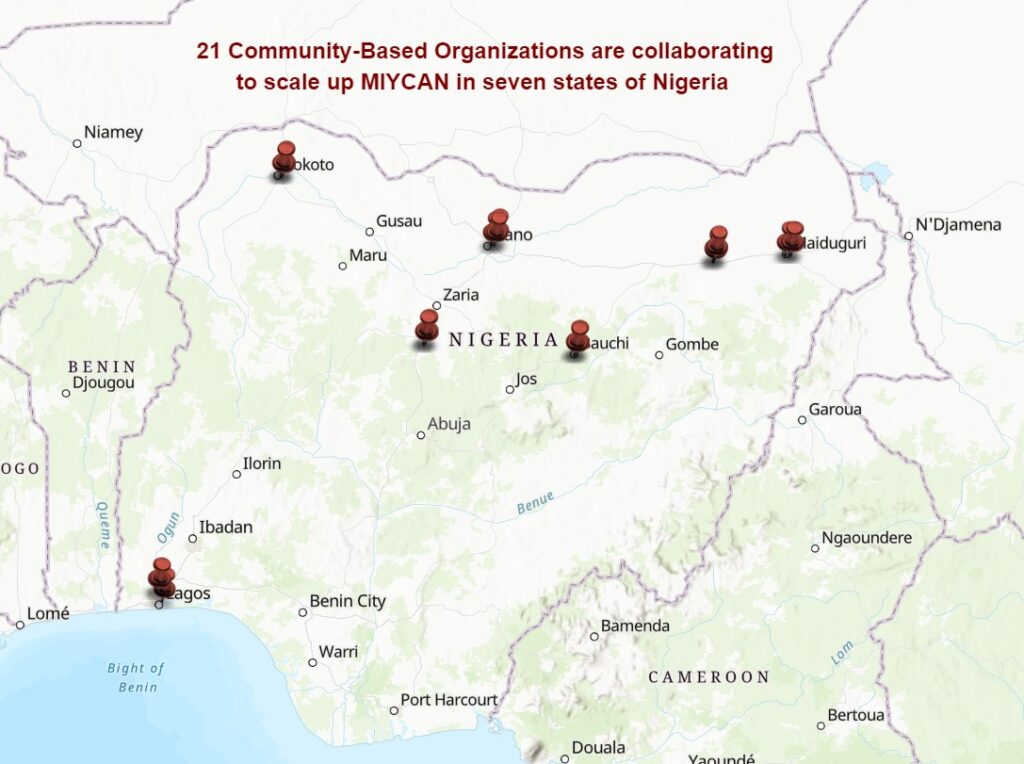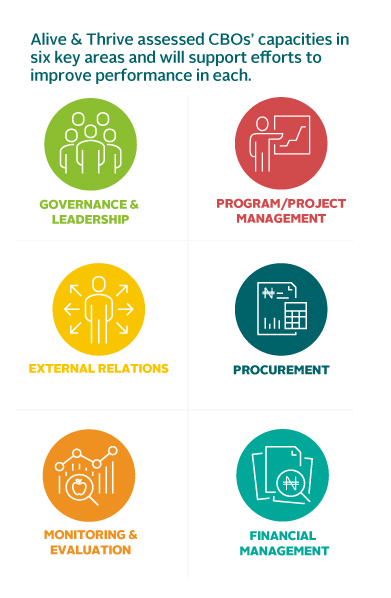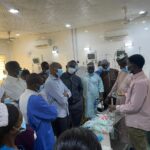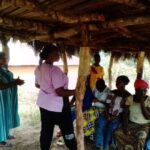Partnerships with community-based organizations in Nigeria are leveraging their local knowledge and experience, supporting efforts to scale up MIYCAN services
AN ALIVE & THRIVE SUCCESS STORY

In mid-February, representatives of 21 community-based organizations (CBO) gathered with government personnel at a conference center in Abuja for a workshop to discuss social and behavior change communication (SBCC) approaches. They came from the seven states in Nigeria where Alive & Thrive is working to scale programs that improve Maternal, Infant, Young Child, And Adolescent Nutrition (MIYCAN).
Over the course of the five-day workshop, the CBO representatives worked side by side with government participants to develop state-specific SBCC approaches that reflect the different contexts and intended audiences in each state and discuss how to collaborate effectively to increase awareness and utilization of MIYCAN services. Alive & Thrive facilitated the workshop.

“These organizations work in the hearts of communities where malnutrition and undernutrition are prevalent,” explained Victor Ogbodo, Director of Alive & Thrive’s Nigeria country program. “They have valuable local knowledge and experience working in these communities that is key to implementing effective nutrition interventions.”
While the CBOs bring effective local knowledge, they themselves need support in building capacity. The 21 CBOs were selected from more than 100 identified and reviewed in the seven states; then Alive & Thrive conducted a comprehensive capacity assessment to clarify the organizations’ capacity needs in six areas (see graphic) relevant to their ability to support the implementation of MIYCAN services.
The capacity assessment was an interactive process that provided the CBOs the opportunity to conduct self-assessments of their organizations, bringing together staff from the organizations and Alive & Thrive.
“Our collaboration with the CBOs is beneficial to all concerned,” Ogbodo said. “The organizations help improve MIYCN service delivery with their insights and ideas gleaned from years of working in the communities, while we help them increase their capacities in relevant areas. And, most importantly, community residents benefit from all of this.”
The workshop in February illustrated aspects of the win-win partnerships with the CBOs. While SBCC concepts were introduced during the workshop, it also allowed the CBOs to inform the design of state-specific SBCC strategies with their own insights.
“To engage women, especially pregnant women, behavioral change is a key aspect,” said Dabis Mwalike, a project manager with Forward in Action for Education, Poverty and Malnutrition in Bauchi State. “Over the years, we have seen that so many donors have invested a lot in service delivery, but it has still not resulted in the change that we want to see.”
“We have over 20 staff, and we have many volunteers across different projects,” said Mwalike. “For one of our projects alone, we have over 75 volunteers who are working in the community; for another, we have 90.”
To leverage the organizations’ strengths, Alive & Thrive is supporting them to conduct mapping exercises of community structures and health facilities, engage with key government officials to build support for MIYCAN, and promote positive nutrition behaviors through awareness-raising initiatives, among other activities.




